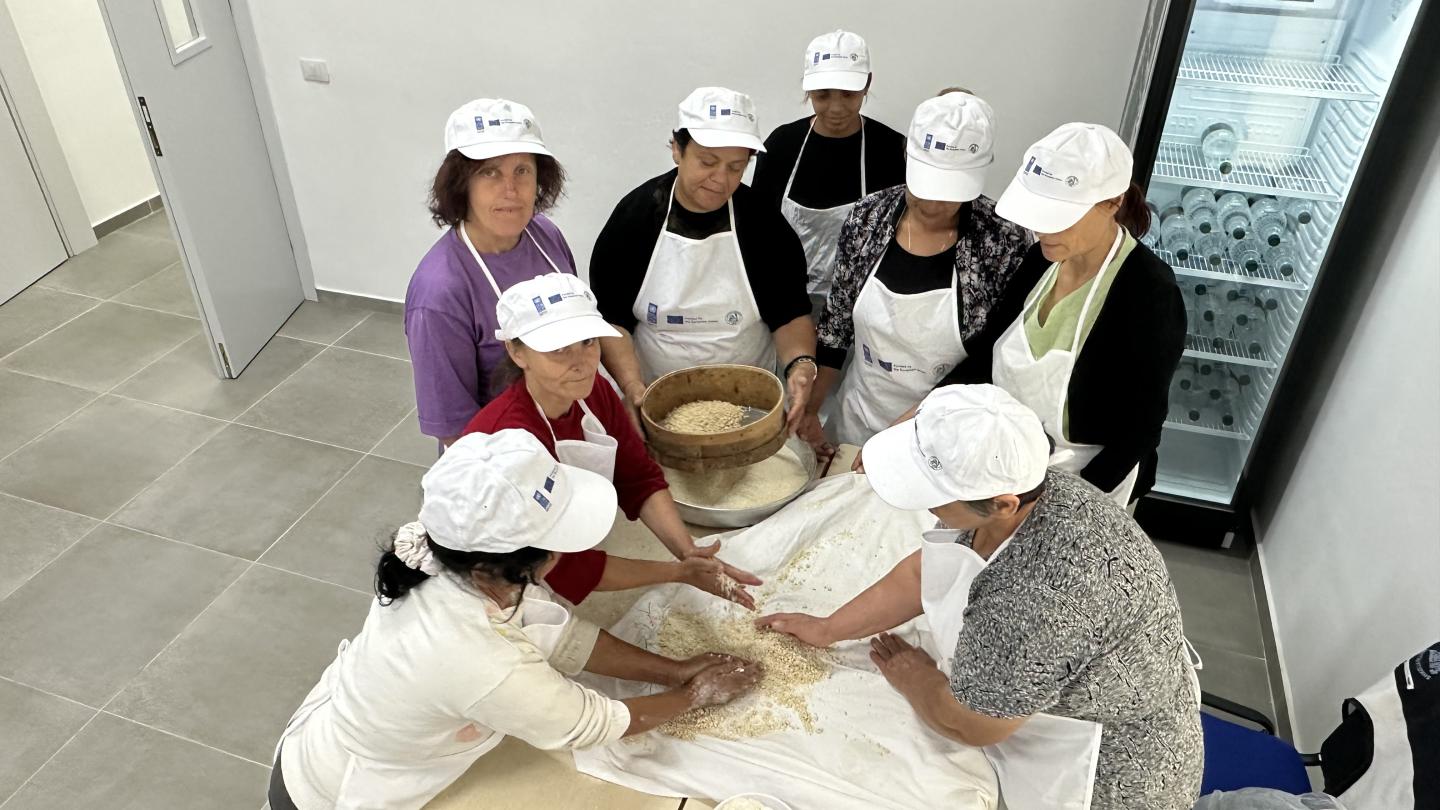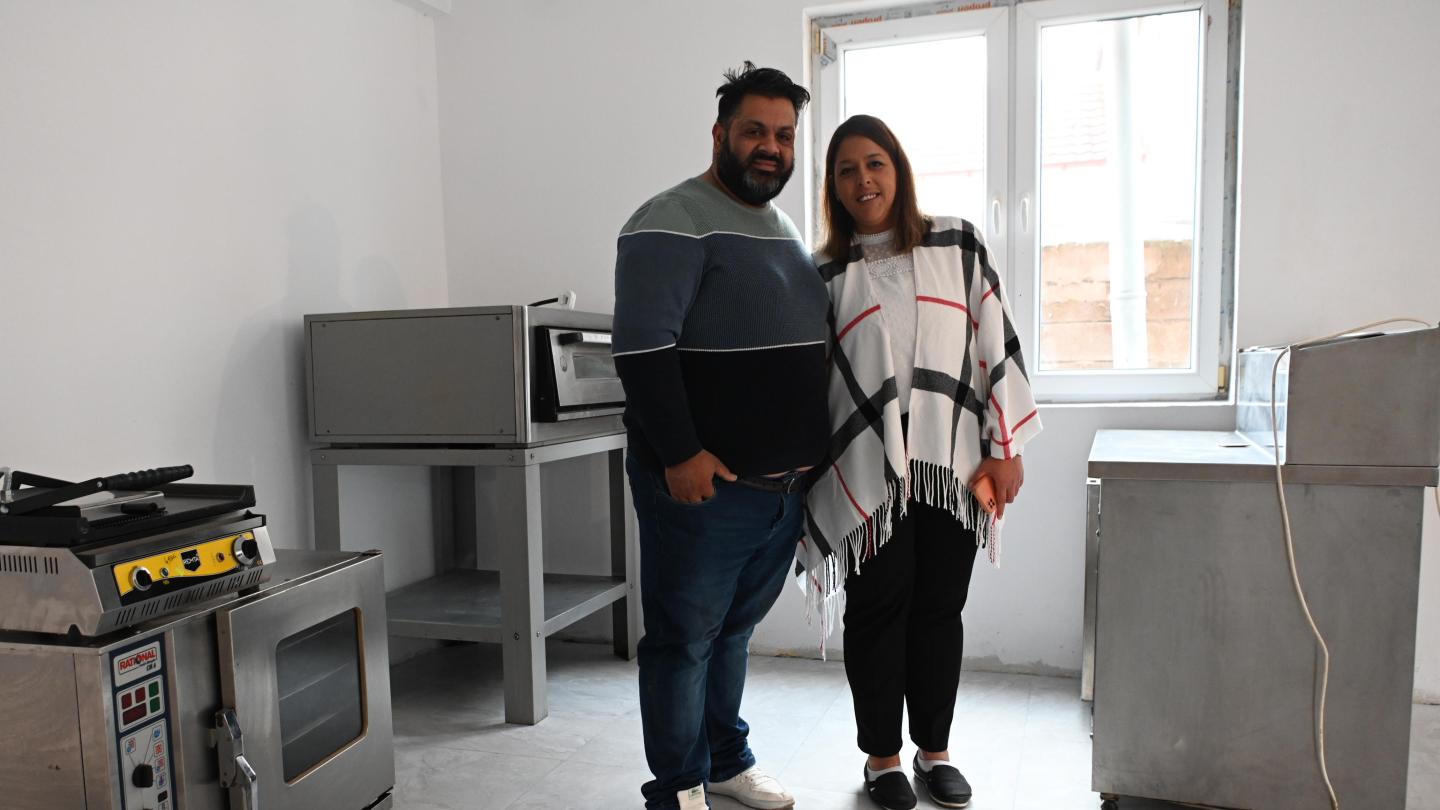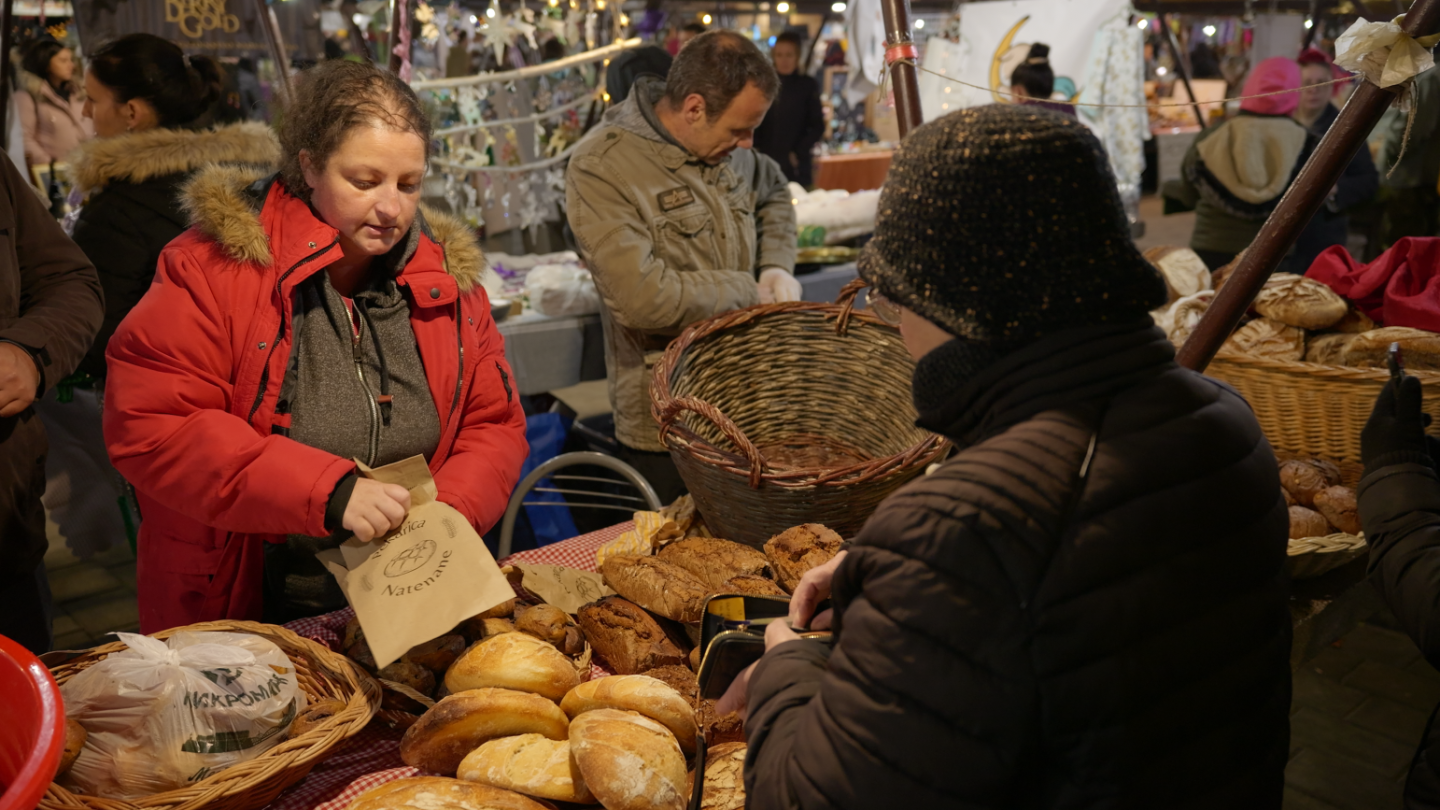Women-led businesses prove how through entrepreneurship, Roma and returnees can reintegrate into their home communities.
Roma Women in Action - For Better Future, Back at Home
March 6, 2024
The social and economic well-being of Roma returnees in the Western Balkans is hindered by complex, structural barriers that pervade from limited education and lack of formal work experience, including at times also stigma and discrimination. Roma returnee-women reject these limitations and with their drive, energy and entrepreneurship are building their better future back home. To make change happen, they draw on their diverse life experiences and creativity, making a future of their own, a better one, back at home.
In the Western Balkan countries, Roma women’s employment rates, regardless whether they are returnees or not, remain consistently lower both from non-Roma women and from Roma and non-Roma men. On 8th of March, International Women’s Day but also every day we recognize the entrepreneurship of returnee women and the difference their entrepreneurship makes in their lives but also their families and communities. To inspire all of us, we share one story of returnee women in Albania, North Macedonia and Serbia where the Reintegration of Returnees project actively engages with institutions and people to lift returnees from deprivation .
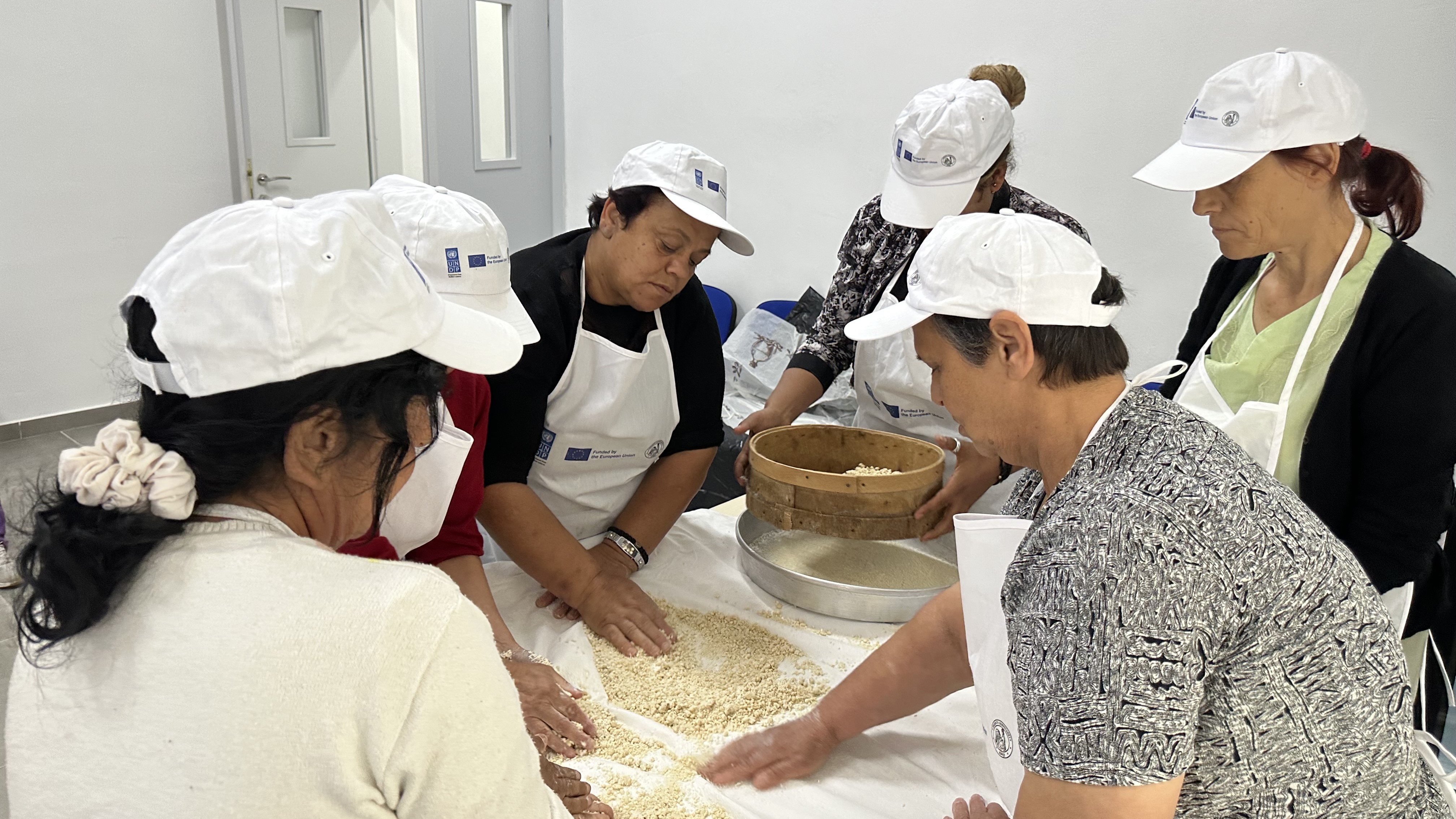
Social business established by Returnee Women of Devoll, Albania
To respond to their common experience of struggle for stable income and employment, ten Roma returnee women in Devoll, Albania, have come together and launched a social enterprise, first of this kind in Devoll. Through cooperation and hard work, using their traditional cooking skills, these women have revived production of trahana and petka, two traditional culinary products common in Albania and the Western Balkans.
"We've always made trahana and petka for our households. This time, with guidance from the local NGO and support from UNDP and EU, we joined forces to create a social enterprise and produce this traditional food for sale."Reflecting on their journey, Juredina Gjiza says.
This social business is a joint venture which demands solidarity, shared learnings, and has strengthened returnee-women bonds around a shared purpose to establish and grow their social business, providing income for them and their families. With support of the EU-funded, UNDP implemented, Regional Returnee Reintegration Project, this social business has already secured first sale agreements for their products and plans to further expand the market for their products to local restaurants and shops in other regions. The social business that returnee women have established is now providing a dignified life back at home, with stable income for women and their families.
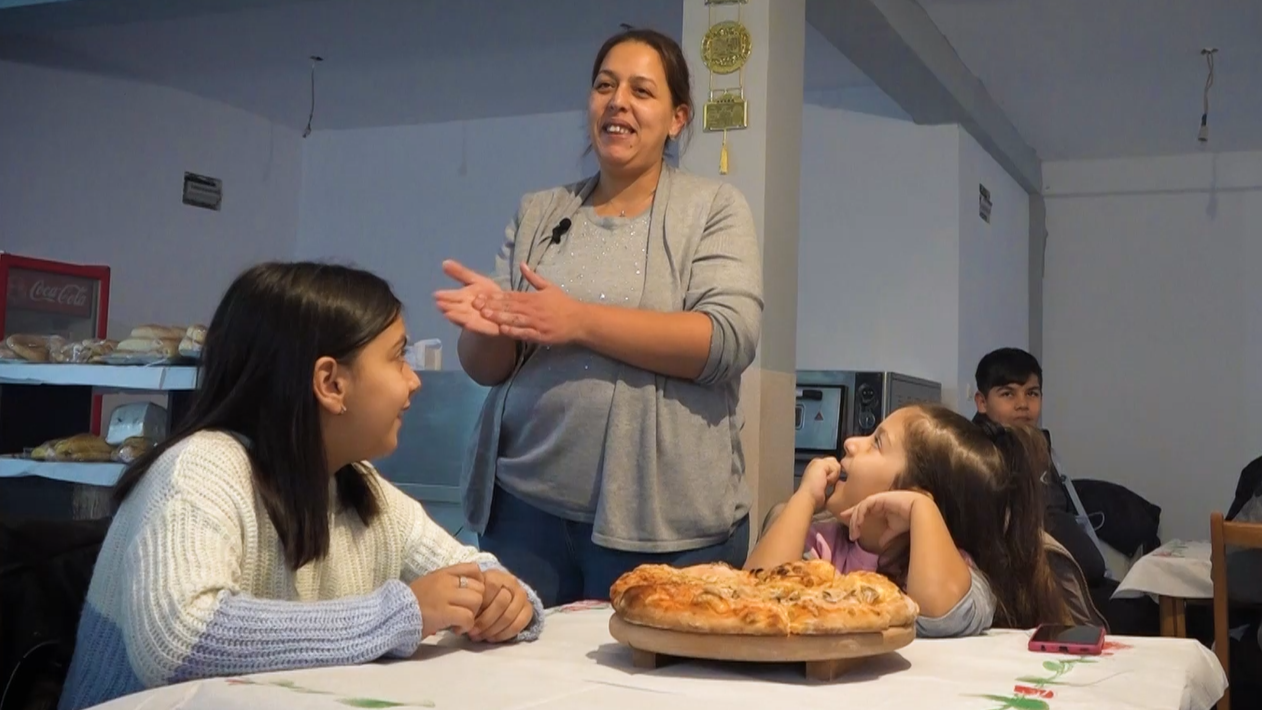
Rafaela’s Pizzeria in Shuto Orizari, North Macedonia
A few months ago, returnee Rafaela Selimovska started to equip enthusiastically a shop in her home that was soon to become a small pizzeria in her hometown, Shuto Orizari, North Macedonia. With excitement and hard work, Rafaela followed every step of the renovation with a hands-on approach, from helping with laying floor tiles to wall-painting. While doing so, looking into the blank canvas of the shop, she had exciting plans where her customers would enjoy pizzas and other delicious snacks.
Rafaela’s idea to open a pizzeria in her hometown came following her return to North Macedonia, after living abroad for five years where she worked as an informal worker in a pizza-restaurant. Living abroad, Rafaela started her informal employment first as an assistant in the kitchen, and through hard work and learning, reached to being the pizza-chef. This experience gave Rafaela valuable skills she could draw on upon return and establish her very own pizza-business back home, also providing employment for her husband. While this is a family small business, it is clear that Rafaela is the “chef” in every sense!
“With my previous experience working in a famous pizza place in Germany, I gained the much-needed professional training later to establish my own place back home. Being my own boss is a challenging but rewarding job!”Rafaela Selimovska
For Rafaela, the Call for a targeted self-employment programme for returnee groups in North Macedonia as part of the national Operational Plan implemented by EU-funded, UNDP implemented Regional Returnee Reintegration Project gave her the needed encouragement to make things happen. Support included mentoring that would help Rafaela navigate business development and grow her business, and a grant-in-kind with some equipment that would ease the burden of equipment acquisition.
“We rated Rafaela’s prospects very good. I think she was one of the best candidates, because she was well-prepared from the experience she had gained in Germany.”Rafaela's business mentor Roman Papadimitrov remarks.
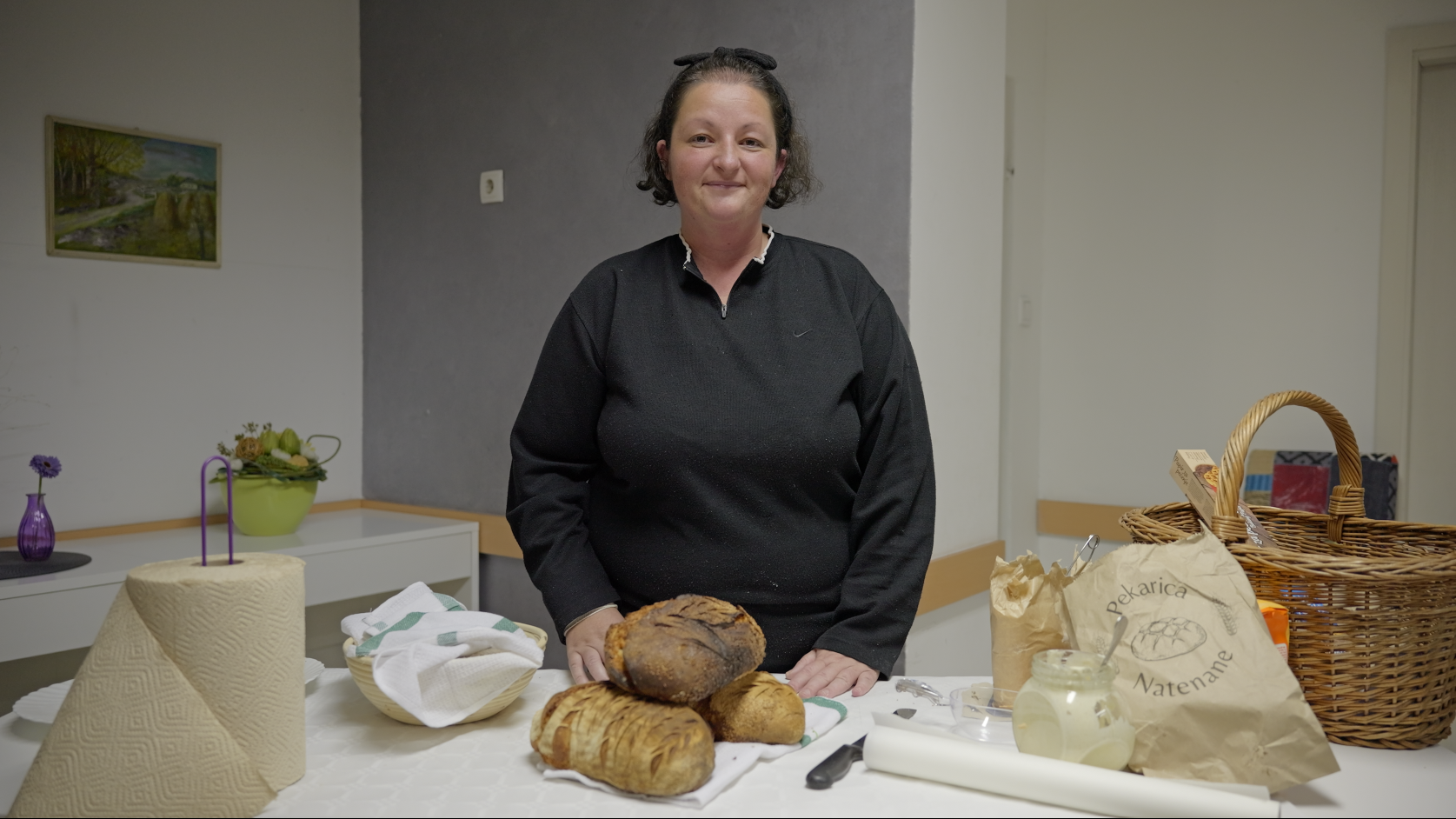
Sourdough Bread-baking by Dragana in Novi Sad, Serbia
Among the hustling Novi Sad (Serbia) Night Bazaar’s crowd stands out Dragana’s stall, where she exhibits her home-made, sourdough bread and other pastry delicacies. Dragana started her venture of sourdough bread-making as home economics, without initially considering as a potential source of family income. But the growing demand gave Dragana an idea to seek a larger consumer base through urban markets around the city.
After her application to the Call for supporting Roma and returnee entrepreneurship, as part of the EU-funded, UNDP implemented Regional Returnee Reintegration Project, UNDP is supporting Dragana to formalize her business by helping her navigate the registration process, along with providing her a whole suite of entrepreneurial skills (such as skills in business development and marketing research), which will help Dragana grow her business ensuring its sustainability in the formal economy.
Dragana is herself not a returnee, even though migration is part of her family story. Her mother, brother, and stepfather had already migrated to the EU (Germany), choosing to leave due to increasing financial difficulties back at home. But Dragana’s family could not settle and make a living there, and instead of Dragana joining them, they returned to Novi Sad.
Dragana’s passion for baking is now flourishing into a small family business that will not only provide Dragana a stable income and a job, but also income for her returnee-family. Dragana with other Roma and returnee-led businesses are agents of change demonstrating how through entrepreneurship, Roma and returnees can reintegrate into their home communities.
“My relatives returned here, and I’m planning to involve them in this business, too. My wish is to turn my passion into a family business … employing my mother first, and then we would consider also employing my brother, if the business and sales grow.”Dragana
About the project
The Reintegration of Returnees in the Western Balkans project is focused on addressing key barriers for socio-economic reintegration of vulnerable returnees in the Western Balkans. The project is part of the EU Instrument for Pre-accession Assistance (IPA) II Multi-Country Action, EU support to Fundamental Rights of Roma Community, and Reintegration of Returnees, entrusted to UNDP, World Bank, and the Council of Europe. In all Western Balkan economies, the project assesses policy and institutional gaps and facilitates a dialogue on mechanisms for implementation and monitoring of reintegration policies and programmes. In Albania, North Macedonia and Serbia, the project implements local level programmes and tests innovative solutions for sustainable socio-economic reintegration of returnees.
Find out more:

 Locations
Locations